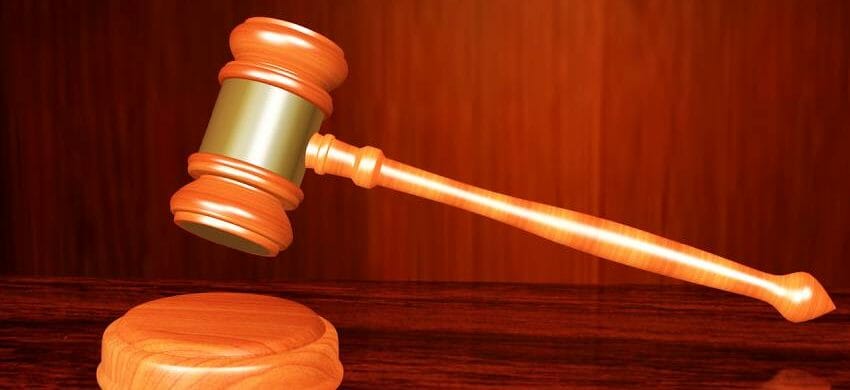Last Updated: March 27, 2025
Are you worried a debt collector will sue you?

Disclaimer – We are not lawyers and we are not giving legal advice. These are merely some options and information. Consult an attorney in your area to determine all your options.
Facing debt collection can be a stressful experience, especially when it escalates to threats of legal action. Whether it's a debt collector or a credit card company, understanding your rights and the potential for a debt collection lawsuit is crucial in navigating these challenging waters.
In this guide, we'll explore the legalities of debt collection, practical steps to handle unpaid debts, and how to protect yourself against potential lawsuits.
Speak to a debt expert for free and find out all your options.
What is Debt Collection Harassment?
The Fair Debt Collection Practices Act protects consumers from predatory debt collectors. This federal law covers debt collectors pursuing various types of debts such as medical, credit card, and mortgages. Many states have an additional fair debt collection practices act that covers other creditors. You’ll have to check your own state to see if it has a FDCPA and the statute of limitations on debts.
However, these actions are prohibited:
- Contacting you between 9 p.m. and 8 a.m. without your permission
- Contact third parties (family, friends and employers) about your debt
- Speaking to your employer except under limited conditions
- Communicating with you if you are represented by an attorney
- Threatening violence or using profanities when speaking to you
- Pretending to be a government official or an attorney
- Sending written notices that look like attorney or governmental letters but that are not
- Sending derogatory messages about you to a credit reporting agency
- Sending information on a postcard – this can include social media.
- Attempting to collect a time-barred debt (debt that's beyond the statute of limitations)
- Hiring an unlicensed credit collection agency
If you are on the receiving end of any of these actions, the debt collector is harassing you and this is illegal. You also have the right to tell debt collectors to stop contacting you. This request should be made in writing, and while it won't make the debt disappear, it can provide relief from constant communication.
Debt Collection Rights
In addition to protecting you from harassment, you also have some legal rights. If you are contacted by a debt collector, do not agree to pay anything. Instead, do the following:
Request proof of debt. This is a written document that includes
- the amount
- original creditor if different from current creditor (if your debt was sold)
- a statement that you have 30 days to contest the debt before it is turned over to collections
- a statement that if you notify the collector within 30 days that the debt is disputed that you must receive a copy of obtain verification of the debt or a copy of a judgment
Next, request the debt collector’s name, contact information and business address. If the person refuses, you may have a scammer on your hands.
Debt Collector Scams
If you have a debt collector who is demanding immediate payment, using high pressure tactics, refusing to answer questions or provide you with contact information, wants your personal information, or wants you to pay by wire or gift cards, HANG UP IMMEDIATELY. This is a debt collection scam.
It's important to understand that making even a partial payment on an old debt can restart the statute of limitations in many states, potentially making you vulnerable to a lawsuit again.
Debt Collectors and Legal Actions
Now that harassment, scams, and rights are out of the way, let’s look at some common questions.
Can debt collectors take you to court? Yes, however, it is a time consuming and expensive proposition. If you have a significantly high debt, valuable personal or business assets, or if you have the expectation of future significant assets, this may increase the risk of being sued.
- They cannot threaten to take you to court if they do not intend to
- They must have a judgement to garnish your wages
How often do collection agencies take you to court, what is the minimum they will take you to court, and will they take you to court for $500 or less? The answer depends on
- how much you owe
- who you owe money to – a big corporation or the mom and pop business down the street
- where you owe the money – do they have to sue you in another state
- how many assets you own – is it worth their effort
- how old the debt is – always check your state’s statute of limitations
Can debt collectors see your bank account balance? Yes and no. The debt collector can see what is in your account if 1) they have a court order; 2) your bank and creditor are the same; or 3) you owe the federal government.
A debt collector may ask for your personal information or to debit your account. DO NOT GIVE THEM YOUR BANKING INFORMATION. With that information, they can monitor your account or take money out.
Can I be sent to collections without notice? Yes. It’s called “parking the debt” and is common in medical billing. If you are expecting a medical bill, stay on top of it. If your debt gets parked for whatever reason, you’ll have to fight to get the damage removed from your credit report.
What is a Demand Letter?
A demand letter gives you formal notice that your creditor is considering legal action. It may come from an attorney or from the creditor. There will be a demand for action, such as repaying your debt. A demand letter will include a threat of legal action.
If you get a demand letter, you need to read it very carefully and respond within the time limit set out in the letter. Credit collectors can and do make mistakes. Make sure that the debt is yours or that you are responsible for it. Make sure that the debt amount is accurate. If it is older than three years, check your state (or that state where the debt was incurred) statute of limitations. Each state is different, and limitations range from three to ten years.
What is a Summons Letter?
Serving papers means you will be receiving a summons. A debt collector cannot threaten to serve you if they don;t plan to follow through.
A summons letter comes from the court system. It is formal notification that you are being sued in court. It will contain the name of the court, the case number, the parties involved, and what you must do. The summons letter will either be delivered by a law officer, or a process server.
Take a summons letter very seriously. Do not ignore the letter. If you ignore the letter, you may automatically lose the case. The summons is a legal action.
If you receive a summons, you should strongly consider speaking with an attorney in your state to determine your options. The heading will read Plaintiff (the creditor) vs Defendant (you). If this is not you or your debt, respond in writing immediately. There is a section explaining how much the debt is and how and when it was incurred. Make certain these are correct. You will receive notice of where, when, and what date you are expected to appear in court. If you incurred the debt in another state, you may have to travel to that state. Know your options to settle the debt for less than the full amount owed, which can be a viable solution for many consumers.
For more information about the difference between a summons letter and a demand letter, please read this article.
Collecting Old Debt
While debt collectors cannot sue if past the statute of limitations, they may still attempt to collect through frequent calls requesting payment. Most states allow this, with a few exceptions prohibiting any collection attempts after statutes expire.
However, collectors often ramp up communication on older debt they purchase for pennies on the dollar hoping consumers don’t know their rights. Be aware that in most cases, you are not obligated to repay expired debt though collectors may still try to extract payment. However, they may still attempt to contact you to pay the debt voluntarily.
Protect Yourself
While ending up on the radar of an aggressive debt collector is sometimes unavoidable, there are preventative steps you can take:
- Carefully review all terms when taking on new debt. Understand late fees, default rates, and other fine print elements that can quickly snowball an account balance.
- Maintain detailed records of payment activity on all debts. This provides proof if collectors contact you inaccurately.
- Seek help early at the first signs of financial hardship. Speaking to a nonprofit credit counseling agency can help you consolidate, mediate disputes with creditors, and avoid account delinquencies in the first place.
FAQs
Conclusion
Receiving threatening calls from aggressive debt collectors is stressful. Though being sued is certainly a possibility in severe delinquency cases, most collection efforts stop well short of litigation. Regardless, understanding your rights and obligations is key when it comes to debt repayment.
While the prospect of being sued over debt is daunting, understanding your rights and taking proactive steps can help you navigate the situation more confidently. Communication with your creditors, knowing your legal rights, and seeking professional advice are key strategies in managing and overcoming debt-related challenges.
For those struggling with debt, Pacific Debt, Inc. offers a comprehensive debt settlement program that can help you negotiate with creditors and reduce the amount you owe. Contact us for a free consultation and explore your options for achieving financial freedom.
Pacific Debt, Inc
If you are getting phone calls from debt collectors, Pacific Debt, Inc. may be able to help you. We work with your creditors to cut the amount you owe on unsecured debt while you build up savings to pay them off with our well-regarded and successful debt settlement program.
To be eligible for the Pacific Debt settlement program, you must have more than $10,000 in unsecured debt, and it typically takes about 2 to 4 years. We rate very highly in Top Consumer Reviews, Top Ten Reviews, Consumers Advocate, Consumer Affairs, Trust Pilot, and US News and World Report.
For more information, contact one of our debt specialists today. The initial consultation is free and our debt specialists will give you all your options.
Our Debt Specialists can help you explore your alternatives to bankruptcy, including debt consolidation and debt settlement options.
Reduce Your Credit Card Debt By Up to Half

BBB Reviews | 4.9/5.0 Rating









 Do Not Sell My Personal Information
Do Not Sell My Personal Information